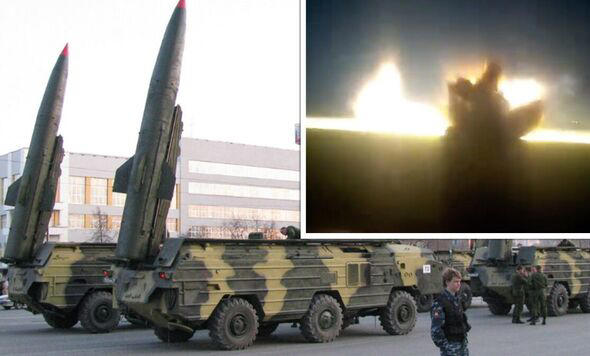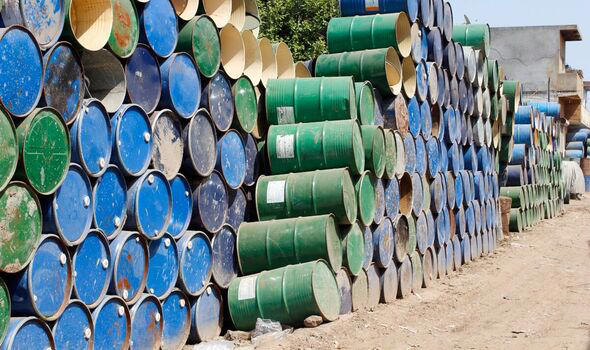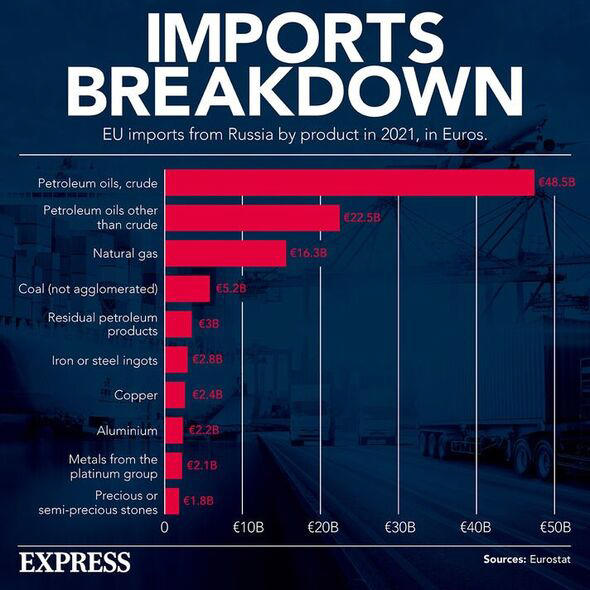Ukraine strikes key Russian pipeline that supplies 33 million tonnes of oil to Europe
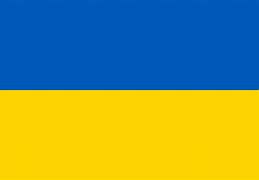







Ukraine strikes key Russian pipeline that supplies 33 million tonnes of oil to Europe
AUkrainian rocket has reportedly struck a key Russian oil pipeline that normally sees 33 million tons of oil transit through it on its route from Russia into Europe, bypassing Ukraine. Experts who arrived at the scene said the oil station was left slightly damaged and without electricity. The blast has also reportedly left a funnel with a diameter of 20 metres. It impacted the Tochkoy-U section of the Druzhba oil pipeline in the Bryansk region of Russia, near the Novozybkov oil pumping station.
There were no reported casualties, although personnel were been evacuated in a timely fashion.
More than 33 million tons of oil pass are said to pass through the Druzbha pipeline into Europe per hour. The system has been dubbed the Friendship Pipeline and is one of the longest in the world.
It carries oil around 4,000 kilometres from the eastern part of European Russia to Ukraine, Belarus, Poland, Hungary, Slovakia, the Czech Republic, Austria and Germany. The system splits in Belarus into a northern and a southern branch. The northern branch continues running via Belarus and Poland to Germany.
The southern branch runs through Ukraine, supplying oil to landlocked Slovakia, Czech Republic and Hungary, which remain hugely reliant on Russian oil.
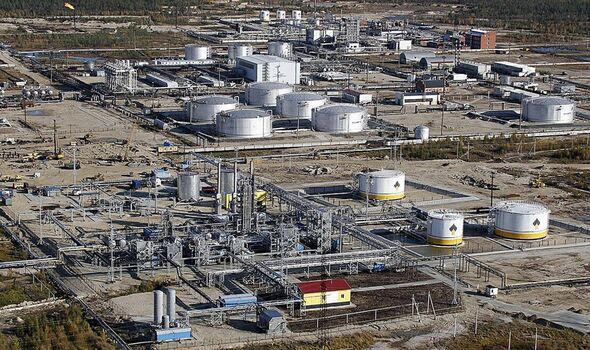
Vladimir Putin's private military chief has boasted that thousands of criminals conscripted to fight for Russia have become "cannibals". Yevgeny Prigozhin, the head of the infamous Wagner Group, recently appeared in a video boasting the capabilities of his men.
The latest damage caused to the system is not the first time it has taken a hit. Back in November, Russian missile and drone strikes battered part of the system stretching into Ukraine. This temporarily suspended flows.
This also comes after EU countries agreed to set a price cap on Russian oil at $60 (£48.69) per barrel. The EU also introduced an import ban on Russian seaborne crude oil and petroleum products.
However, these landlocked countries still rely on Russian pipeline oil and were exempted from a sanctions package slapped down on Russia for invading Ukraine.
Back when the oil pipeline was last attacked, Hungary's energy supply was significantly impacted as the Druzbha can deliver nearly 8 million tons of oil per year to the nation at maximum capacity. The rocket impact at the power station close to the Belarus border resulted in the temporary suspension of flows into the country, sparking panic in Budapest.
Meanwhile, oil deliveries to Slovakia through the Druzhba pipeline were also suspended.
It came as Russia deliberately targeted critical energy infrastructure in Ukraine, attacks which previously resulted in blackouts that have been known to last as long as 24 hours in Kyiv and elsewhere.
Ukrainian Energy Minister Herman Galushchenko said that the strikes hitting the pipeline in November caused significant damage to the electricity transmission system.
He said: "Yesterday, the Russians carried out the most massive attack on the energy system of Ukraine, using about 100 missiles, as well as a large number of drones."
In October, fears over the pipeline soared again when Polish pipeline operator PERN said it detected a leak in the system, which later turned out to be the cause of an accident.
Mateusz Berger, Poland's top official responsible for energy infrastructure, told Reuters that there were no grounds to believe the leak was caused by deliberate sabotage.
However, the announcement did raise concerns as it came just two weeks after blasts on two subsea gas pipelines connecting Russia to Germany, Nord Stream 1 and 2, caused vast amounts of gas to pour into the Baltic Sea.
While the West believes Russia was the perpetrator of this attack, widely agreed to be a deliberate act of sabotage, solid evidence linking Moscow to the crime has yet to surface.
Reference: Daily Express: Jacob Paul
Articles-Popular
- Main
- Contact Us
- Planetary Existences-2
- Planetary Existences
- TWO REVELATIONS-2
- The Two Revelations
- Jeffery Epstein - The Saga - 9
- Jeffery Epstein - The Saga - 8
- Jeffery Epstein - The Saga - 10
- Universality of Initiation
- The Participants In The Mysteries-2
- The Path Of Initiation
- Initiation and the Devas
- Discipleship - Group Relations - 2
- Impeachment Investigators Subpoena White House - Ukraine
- The Fourth Way - Study of Oneself - P.D.Ouspensky
- The Probationary Path - 2
- The Final Initiation
- The Succeeding Two Initiations
- The Participants In The Mysteries
- Discipleship - Group Relationships
- Discipleship
- Jeffery Epstein - The Saga - 7
- The Fourth Way - Wrong Functions - P.D Ouspensky
- Statues are a mark of honour. Like Edward Colston, Cecil Rhodes and Oliver Cromwell have to go
- Jeffery Epstein - The Saga - 6
Articles - Latest
- Ofcom launches investigation into David Lammy’s LBC radio show
- NATO needs to take punitive measures against Erdogan, here's why
- Iran launches massive drone attack on Israel
- Brexit has made the UK a lower-status nation, says David Miliband
- ‘Hungarians rise’: Tens of thousands protest against Orban in Budapest
- Though Rwanda has come a long way since the 1994 genocide, scars of the past still haunt the nation
- Who is Mohamed Mansour? Knighted billionaire who gave Tories £5m
- South Africa’s parliament speaker resigns over accusations of bribery
- A Russian journalist who covered Navalny's trials is jailed in Moscow on charges of extremism
- Senegal top court confirms Bassirou Diomaye Faye's election victory
- Remembering Russia's sudden withdrawal from a key nuclear arms agreement
- Myanmar junta chief calls for unity, says military holding power 'temporarily'
- Khan pledges 1,300 more police officers, PCSOs and special constables on streets
- Russia's oil shipments to North Korea breach UN sanctions, expose rising authoritarian ties
- China's Xi tells Dutch PM cutting supply chains would lead to confrontation






